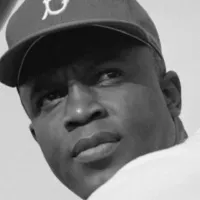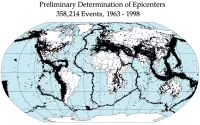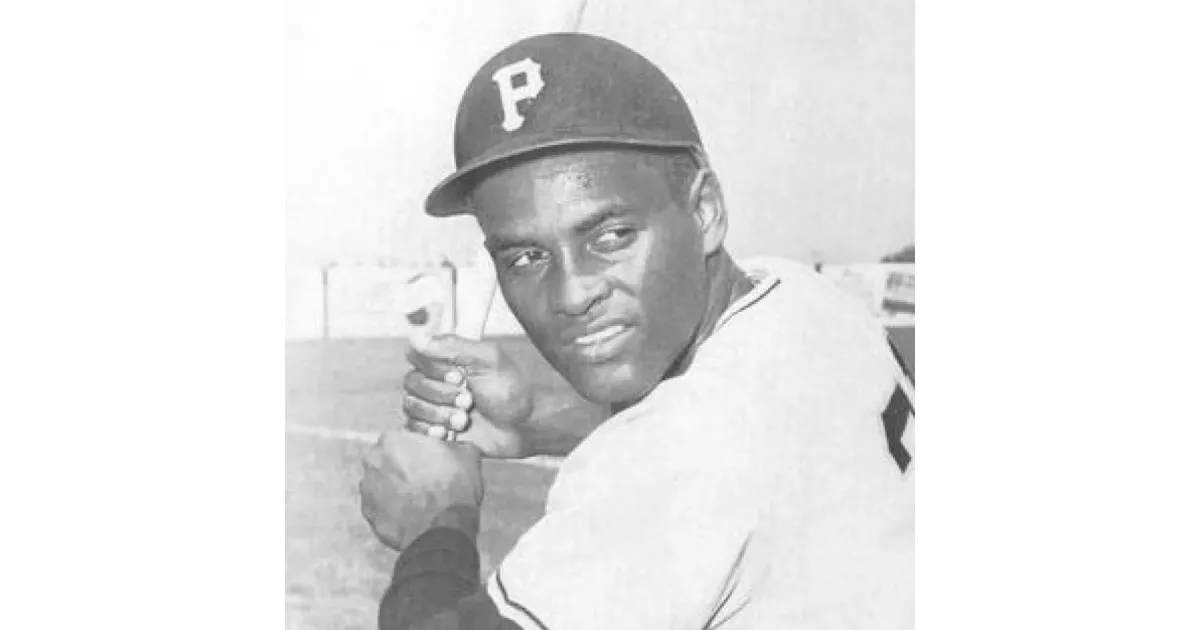Roberto Clemente was a celebrated Puerto Rican baseball player for the Pittsburgh Pirates, playing 18 MLB seasons. Known for his exceptional skill as a right fielder and humanitarian efforts, he tragically died in a plane crash in December 1972 while delivering aid to earthquake victims in Nicaragua. His death prompted the National Baseball Hall of Fame to waive its waiting period, and he was posthumously inducted in 1973. Clemente was the first Caribbean player and second Hispanic player to receive this honor, cementing his legacy as a baseball icon and a symbol of selfless service.
1900: Baseball History
Roberto Clemente was the first player in modern Major League history (since 1900) to hit a documented walk-off, inside-the-park grand slam.
August 18, 1934: Roberto Clemente's Birth
Roberto Clemente was born on August 18, 1934. He later became a professional baseball player.
1948: Pirates Losing Seasons
The Pirates struggled through several difficult seasons through the 1950s and had not had a winning season since 1948.
October 9, 1952: Signed with Cangrejeros de Santurce
On October 9, 1952, Roberto Clemente signed a contract with the Cangrejeros de Santurce of the Puerto Rican Professional Baseball League (LBPPR).
February 19, 1954: Signed with the Brooklyn Dodgers
On February 19, 1954, Roberto Clemente signed a contract with the Brooklyn Dodgers for a $15,000 contract.
June 1, 1954: Observed by Pirates Scout
On June 1, 1954, Pirates scout Clyde Sukeforth noticed Clemente during a scouting trip and inquired about his status, leading to the Pirates drafting him later.
July 25, 1954: First North American Home Run
On July 25, 1954, Roberto Clemente hit the first home run of his North American baseball career.
November 22, 1954: Selected by the Pirates in Rule 5 Draft
On November 22, 1954, the Pittsburgh Pirates selected Roberto Clemente as the first pick in the Rule 5 draft.
1954: Drafted by the Pittsburgh Pirates
After being signed by the Brooklyn Dodgers and sent to the minor leagues, Roberto Clemente was drafted by the Pittsburgh Pirates after the 1954 season.
1954: Auto Accident
In 1954, Clemente was in an auto accident which caused back troubles, but the Marine Corps training programs helped Clemente physically and his back troubles disappeared as a result of the training.
April 17, 1955: MLB Debut with the Pirates
Roberto Clemente debuted with the Pittsburgh Pirates on April 17, 1955, in a game against the Brooklyn Dodgers.
July 25, 1956: Walk-off Inside-the-Park Grand Slam
On July 25, 1956, Roberto Clemente hit a walk-off, inside-the-park grand slam against the Chicago Cubs.
September 1958: Joined the Marine Corps Reserve
In September 1958, Roberto Clemente joined the United States Marine Corps Reserve.
1958: Played in the Liga de Béisbol Profesional de Puerto Rico
During the off-seasons starting in 1958 (except the 1958–59, 1962–63, 1965–66, 1968–69, 1971–72, and 1972–73 seasons), Clemente played in the Liga de Béisbol Profesional de Puerto Rico.
1958: Pirates Winning Season
In 1958, the Pittsburgh Pirates had their first winning season since 1948.
1959: Two All-Star games were held
From 1959 through 1962, two All-Star games were held each season.
1959: Marine Corps Reserve Duty
In 1959, Clemente was fulfilling his Marine Corps Reserve duty and set to be released from Camp Lejeune until April 4.
1959: Below .300 Season
In 1968, Clemente had a season where he failed to hit above .300, the only year after 1959 in which he did not reach this mark.
May 1960: Named NL Player of the Month
In May 1960, Roberto Clemente was named National League Player of the Month
October 24, 1960: Life Magazine Article
On October 24, 1960, an edition of Life magazine featured an article by Jim Brosnan discussing Clemente's walk-off grand slam.
1960: Clemente was a Pirate during the 1960 World Series
In 1960, Clemente was a Pirate during the World Series championship team.
1960: NL Player of the Month and World Series Win
In 1960, Roberto Clemente was selected as the National League's Player of the Month and helped the Pirates win the World Series.
1960: World Series Champion
In 1960, Roberto Clemente won his first World Series as a starting position player.
1961: Welcome Reception in Puerto Rico
Following the 1961 season, Roberto Clemente and Orlando Cepeda were received by 18,000 people upon their arrival in Puerto Rico.
1961: National League Batting Leader
In 1961, Roberto Clemente became the National League batting leader.
1961: All-Star Game and Gold Glove
In 1961, Roberto Clemente was named the starting NL right fielder for the first of two All-Star games. That season, he also received his first Gold Glove Award.
1961: Gold Glove Award
In 1961, Roberto Clemente's Gold Glove winning streak started, earning the award for each of his final 12 seasons.
1962: Played in the Liga de Béisbol Profesional de Puerto Rico
During the off-seasons leading up to 1962 (except the 1958–59, 1962–63, 1965–66, 1968–69, 1971–72, and 1972–73 seasons), Clemente played in the Liga de Béisbol Profesional de Puerto Rico.
1962: Two All-Star games were held
From 1959 through 1962, two All-Star games were held each season.
September 1964: End of Marine Corps Reserve Duty
Roberto Clemente was a private first class in the Marine Corps Reserve until September 1964.
November 14, 1964: Married Vera Zabala
On November 14, 1964, Clemente married Vera Zabala at San Fernando Church in Carolina.
1964: National League Batting Leader
In 1964, Roberto Clemente became the National League batting leader.
1965: Played in the Liga de Béisbol Profesional de Puerto Rico
During the off-seasons leading up to 1965 (except the 1958–59, 1962–63, 1965–66, 1968–69, 1971–72, and 1972–73 seasons), Clemente played in the Liga de Béisbol Profesional de Puerto Rico.
1965: Birth of Roberto Clemente Jr.
In 1965, Roberto Clemente and Vera Zabala had their first child, Roberto Clemente Jr.
1965: National League Batting Leader
In 1965, Roberto Clemente became the National League batting leader.
1965: Thigh Injury and All-Star Game
In 1965, Roberto Clemente experienced a complication of a thigh injury while participating in the league's all-star game.
1966: Clemente wins NL MVP Award
In 1966, Clemente won the National League MVP Award.
1966: Birth of Luis Roberto Clemente
In 1966, Roberto Clemente and Vera Zabala had their second child, Luis Roberto.
1966: National League MVP Award
In 1966, Roberto Clemente was named the National League Most Valuable Player (MVP).
May 1967: Named NL Player of the Month
In May 1967, Roberto Clemente was named National League Player of the Month
1967: Clemente expresses desire to build a sports center
In 1967, Clemente stated his desire to create a sports center for disadvantaged youth in Puerto Rico, which he considered the most important thing he wanted to do after quitting baseball.
1967: National League Batting Leader
In 1967, Roberto Clemente became the National League batting leader.
1968: Played in the Liga de Béisbol Profesional de Puerto Rico
During the off-seasons leading up to 1968 (except the 1958–59, 1962–63, 1965–66, 1968–69, 1971–72, and 1972–73 seasons), Clemente played in the Liga de Béisbol Profesional de Puerto Rico.
1968: Below .300 Season
In 1968, Clemente had a season where he failed to hit above .300, the only year after 1959 in which he did not reach this mark.
July 1969: Named NL Player of the Month
In July 1969, Roberto Clemente was named National League Player of the Month
1969: Birth of Roberto Enrique Clemente
In 1969, Roberto Clemente and Vera Zabala had their third child, Roberto Enrique.
1969: Baseball cards listed as "Bob Clemente"
Throughout 1969, Roberto Clemente's baseball cards listed him as "Bob Clemente", a practice he disliked as he felt it disrespected his Puerto Rican and Latino heritage.
June 28, 1970: Pirates final game at Forbes Field
On June 28, 1970, the Pirates played their final game at Forbes Field before moving to Three Rivers Stadium, which was an emotional event for Clemente, who stated he had spent half his life there.
July 24, 1970: "Roberto Clemente Night" at Three Rivers Stadium
On July 24, 1970, "Roberto Clemente Night" was celebrated at Three Rivers Stadium. Puerto Rican fans traveled to cheer Clemente in traditional attire. He received a scroll with 300,000 signatures from Puerto Rico, and donations were made to charity work at his request.
1970: Clemente's season and personal events
During the 1970 season, Clemente had a .352 batting average and the Pirates won the NL East pennant. During the offseason, Clemente managed the Senadores and his father, Melchor Clemente, underwent surgery.
July 1971: Clemente discusses his future
In July 1971, during All-Star Game activities, Clemente told Richie Ashburn that only God knows how long he'll be alive when asked about getting his 3,000th hit.
1971: Played in the Liga de Béisbol Profesional de Puerto Rico
During the off-seasons leading up to 1971 (except the 1958–59, 1962–63, 1965–66, 1968–69, 1971–72, and 1972–73 seasons), Clemente played in the Liga de Béisbol Profesional de Puerto Rico.
1971: Pirates win the World Series; Clemente wins MVP
In 1971, the Pirates won the NL East, the NL pennant, and the World Series against the Baltimore Orioles. Clemente batted .414 during the series, including a solo home run in the final game, and he received the World Series Most Valuable Player Award.
October 11, 1972: Clemente's last game
On October 11, 1972, Clemente played his last game at Cincinnati's Riverfront Stadium in the final game of the 1972 NLCS. He had his final hit in the 1st inning, and his final plate appearance was an intentional walk in the 8th inning.
December 1972: Clemente's Humanitarian Flight
In December 1972, Clemente chartered a plane to deliver emergency relief goods to earthquake survivors in Nicaragua.
December 23, 1972: Earthquake in Managua, Nicaragua; Clemente organizes relief
On December 23, 1972, following a massive earthquake in Managua, Nicaragua, Clemente organized emergency relief flights. After learning that aid was being diverted, he decided to accompany the fourth flight himself to ensure it reached the victims.
1972: Clemente's performance in 1972 season
During the 1972 season, Clemente played in 102 games, hitting .312, making the NL All-Star roster for the fifteenth time, and winning his twelfth consecutive Gold Glove.
1972: Played in the Liga de Béisbol Profesional de Puerto Rico
During the off-seasons leading up to 1972 (except the 1958–59, 1962–63, 1965–66, 1968–69, 1971–72, and 1972–73 seasons), Clemente played in the Liga de Béisbol Profesional de Puerto Rico.
1972: Clemente's Death and Charitable Work
In 1972, Roberto Clemente died in a plane crash while delivering aid to victims of the Nicaragua earthquake. He was known for his charity work in Latin America and the Caribbean.
1972: Final Gold Glove Award
In 1972, Roberto Clemente won his 12th consecutive Gold Glove Award.
December 31, 1972: Roberto Clemente's Death
Roberto Clemente died on December 31, 1972, in a plane crash while delivering aid to earthquake victims in Nicaragua.
March 20, 1973: Clemente elected to Baseball Hall of Fame
On March 20, 1973, the Baseball Writers' Association of America held a special election and voted to waive the waiting period for Clemente, posthumously electing him into the Baseball Hall of Fame with 92.7% of the votes.
April 6, 1973: Pirates retire Clemente's number
On April 6, 1973, the Pittsburgh Pirates retired Clemente's number 21, shortly after his Hall of Fame election.
1973: Commissioner's Award renamed Roberto Clemente Award
In 1973, Major League Baseball renamed the Commissioner's Award to the Roberto Clemente Award, given annually to a player with outstanding baseball skills and community involvement.
1973: Posthumously honored with Presidential Citizens Medal and Congressional Gold Medal
In 1973, President Richard Nixon posthumously honored Clemente with the Presidential Citizens Medal, and Congress honored him with the Congressional Gold Medal.
1973: Posthumous Induction into the Hall of Fame
In 1973, after his death, Roberto Clemente was posthumously inducted into the National Baseball Hall of Fame. He was the first player from the Caribbean to receive this honor.
1973: Coliseo Roberto Clemente opened
In 1973, the Coliseo Roberto Clemente opened in San Juan.
1974: Harlem River State Park renamed Roberto Clemente State Park
In 1974, the Harlem River State Park in The Bronx, New York City, was renamed Roberto Clemente State Park in his honor.
August 17, 1984: Roberto Clemente postal stamp issued
On August 17, 1984, the United States Postal Service issued a Roberto Clemente postal stamp designed by Juan Lopez-Bonilla, featuring Clemente wearing a Pittsburgh Pirates baseball cap with a Puerto Rican flag.
1994: Statue erected at Three Rivers Stadium
In 1994, a statue in memory of Clemente was erected at Three Rivers Stadium just before the MLB All-Star Game.
1997: Jackie Robinson's number retired league-wide
In 1997, Jackie Robinson's number 42 was retired league-wide.
1999: Ranked on The Sporting News list
In 1999, Clemente was ranked number 20 on The Sporting News list of the 100 Greatest Baseball Players, the highest-ranking Latin American and Caribbean player.
2000: Estadio Roberto Clemente opened
In 2000, Estadio Roberto Clemente opened in Carolina.
2001: Statue moved to PNC Park
In 2001, the statue originally at Three Rivers Stadium was moved to PNC Park when it opened.
2002: "Roberto Clemente Day" proclaimed by MLB
In 2002, 30 years after his death, Major League Baseball proclaimed September 15 as "Roberto Clemente Day".
2002: Vera Clemente discusses Roberto's premonition
In 2002, in an ESPN documentary series, Clemente's widow Vera mentioned that Clemente had often said he thought he would die young.
2003: Inducted into the United States Marine Corps Sports Hall of Fame
In 2003, Clemente was inducted into the United States Marine Corps Sports Hall of Fame.
2003: Awarded the Presidential Medal of Freedom
In 2003, President George W. Bush awarded Clemente the Presidential Medal of Freedom.
2005: Named to MLB's Latino Legends Team
In 2005, Clemente was named to Major League Baseball's Latino Legends Team.
2007: Selected for All Time Rawlings Gold Glove Team
In 2007, Clemente was selected for the All Time Rawlings Gold Glove Team for the 50th anniversary of the Gold Glove Award.
2010: Elected to Hispanic Heritage Baseball Museum Hall of Fame
In 2010, Clemente was elected to the Hispanic Heritage Baseball Museum Hall of Fame.
2012: Puerto Rico Professional Baseball League renamed
In 2012, the Puerto Rico Professional Baseball League (LBPPR) was renamed Liga de Béisbol Profesional Roberto Clemente, and the number 21 was permanently retired.
2013: Statue unveiled at Roberto Clemente State Park
In 2013, forty years after his election to the Hall of Fame, a statue honoring Clemente was unveiled at Roberto Clemente State Park, the first statue honoring a Puerto Rican in New York City.
2015: Elected to Caribbean Baseball Hall of Fame
In 2015, Clemente was elected to the Caribbean Baseball Hall of Fame.
November 16, 2019: Death of Vera Clemente
On November 16, 2019, Vera Clemente, Roberto Clemente's widow, died at the age of 78.
2020: Ranked on The Athletic's "Baseball 100" list
In 2020, The Athletic ranked Clemente at number 40 on its "Baseball 100" list.
2022: Granted formal recognition of prócer (national hero) by Puerto Rico
In 2022, the government of Puerto Rico granted Clemente the formal recognition of prócer (national hero).
2025: Death of Justino Clemente
In March 2025, Clemente's older brother Justino died at the age of 97 after visiting the Baseball Hall of Fame, and providing insight to the language barrier and racism Roberto faced.
Mentioned in this timeline

George W Bush the rd U S President - is...

Jackie Robinson was a pivotal figure in American history As...
Puerto Rico is a self-governing Caribbean archipelago and island that...
Pennsylvania is a U S state located in the Mid-Atlantic...

An earthquake is a sudden shaking of the Earth's surface...

News encompasses information about current events disseminated through various media...
Trending

51 minutes ago US, Israel launch military operation against Iran, airstrikes kill leader, Gulf earthquake follows.

51 minutes ago Kaitlan Collins covers Bill Clinton's Epstein testimony and calls out Trump allies.

52 minutes ago Adam Levine and Behati Prinsloo: Navigating Cheating Allegations and Maintaining Relationship

52 minutes ago Brandi Carlile Honored as Time's 2026 Woman of the Year, Other News Emerge
Gabe Perreault is a Canadian-born American professional ice hockey player currently playing for the New York Rangers in the NHL...

52 minutes ago Steve Witkoff involved in tense Geneva meeting before US-Iran conflict escalation.
Popular

Jesse Jackson is an American civil rights activist politician and...

Hillary Diane Rodham Clinton is a prominent American politician lawyer...

Jim Carrey is a Canadian-American actor and comedian celebrated for...

XXXTentacion born Jahseh Dwayne Ricardo Onfroy was a controversial yet...

Kashyap Pramod Patel is an American lawyer who became the...

Michael Joseph Jackson the King of Pop was a highly...
